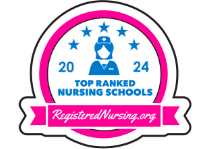School of Nursing
As a Nevada State University School of Nursing graduate, you will be well-prepared to meet Southern Nevada’s need for qualified nursing professionals in a healthcare career, and be trusted in your holistic practice.
Overview
The Nevada State University School of Nursing fosters excellence in healthcare by providing innovative and evidence-based education. Our focus on caring and competence leads to improved health, safety, and cultural awareness for all participants within the communities served.
With the intentional structuring of the curricula in the caring science based upon the work of nurse theorist Dr. Jean Watson, our faculty are here to support you on your journey to academic and professional success, and inspire you to be compassionate as you provide nursing care to patients and their families.
The baccalaureate degree program in nursing at Nevada State College is accredited by the Commission on Collegiate Nursing Education (http://www.ccneaccreditation.org).

Degree Pathways
Pre-Licensure BSN Program - Full Time Track
The pre-licensure bachelor of science in nursing (BSN) degree tracks are for students who do not already have an associates degree in nursing and/or who are not already a practicing registered nurse. During the application process, students may apply for either a full- or part-time track in pursuit of a BSN. The full-time track is for students who prefer to continue in the academic setting at a full-time pace which is >12 credits per semester. Degree completion in the full-time track can typically be achieved in 5 semesters, including summers.
Pre-Licensure BSN Program - Part-Time Track
The pre-licensure bachelor of science in nursing (BSN) degree tracks are for students who do not already have an associates degree in nursing and/or who are not already a practicing registered nurse. During the application process, students may apply for either a full- or part-time track in pursuit of a BSN. The part-time track is for students who prefer to take courses at a part-time rate, typically 6-9 credits per semester where classes are offered primarily on Thursdays, Fridays, and Saturdays. Degree completion in the part-time track can typically be achieved in 10 semesters, including summers.
Post-Licensure BSN Program - RN to BSN Online Track
The post-licensure bachelor of science in nursing (BSN) degree track is for students who have earned an associate degree in nursing; who hold an unencumbered Registered Nurse (RN) license; or who are recent graduates from an ADN program and are able to obtain an RN license within 7 weeks of acceptance into the program.
The innovative curriculum, infused with applications of the Caring Sciences, is offered in a 100% online format and includes both indirect and practice experiences.
Program Admission
Pre-licensure Summer 2024 Admission Application process is now closed.
Fall 2024 Pre-licensure BSN Admission Application will be available starting May 10, 2024, and will close on May 31, 2024. Please check back to this page for future updates.
Students who are offered and accept admission to the BSN program to start Summer 2024 are required to attend two mandatory, in-person orientations on the following dates:
April 5, 2024 – 1/2 day, 8:30am to 12:30pm – CEB 211/212
May 3, 2024 – Full day, exact time frame and on campus location TBA
Resources
General Licensure Information (34 CFR 668.43)
NCLEX Pass Rates
Post-Licensure (RN to BSN) BSN Handbook 2023-24
Book an Appointment with an RN to BSN Advisor
Nevada State Board of Nursing RN Licensure Information
Nevada State Board of Nursing
Nevada State Student Nursing Association
Nursing Student Success Center
Pre-Professional Nursing at Nevada State
Class Search
Nevada State University has numerous courses to help you reach your academic goals. Find available courses using our Schedule of Classes tool.
Take a Tour
Schedule a tour to visit our stunning campus and learn more about Nevada State’s offerings!
Get Info
From application to graduation, we support you as you begin your career as a dynamic and forward-thinking professional. Click the button below to request more information.
Connect with the School Of Nursing
Contact Information
Main Phone: 702.992.2850
Email: nursing@nsc.edu
Office Location
Kasner Academic Building
1300 Nevada State Drive
Henderson, NV 89002
Office Hours
Staff Availability:
Mon‐Fri, 8‐5 PM
Faculty Availability: By arrangement
Closed all major holidays